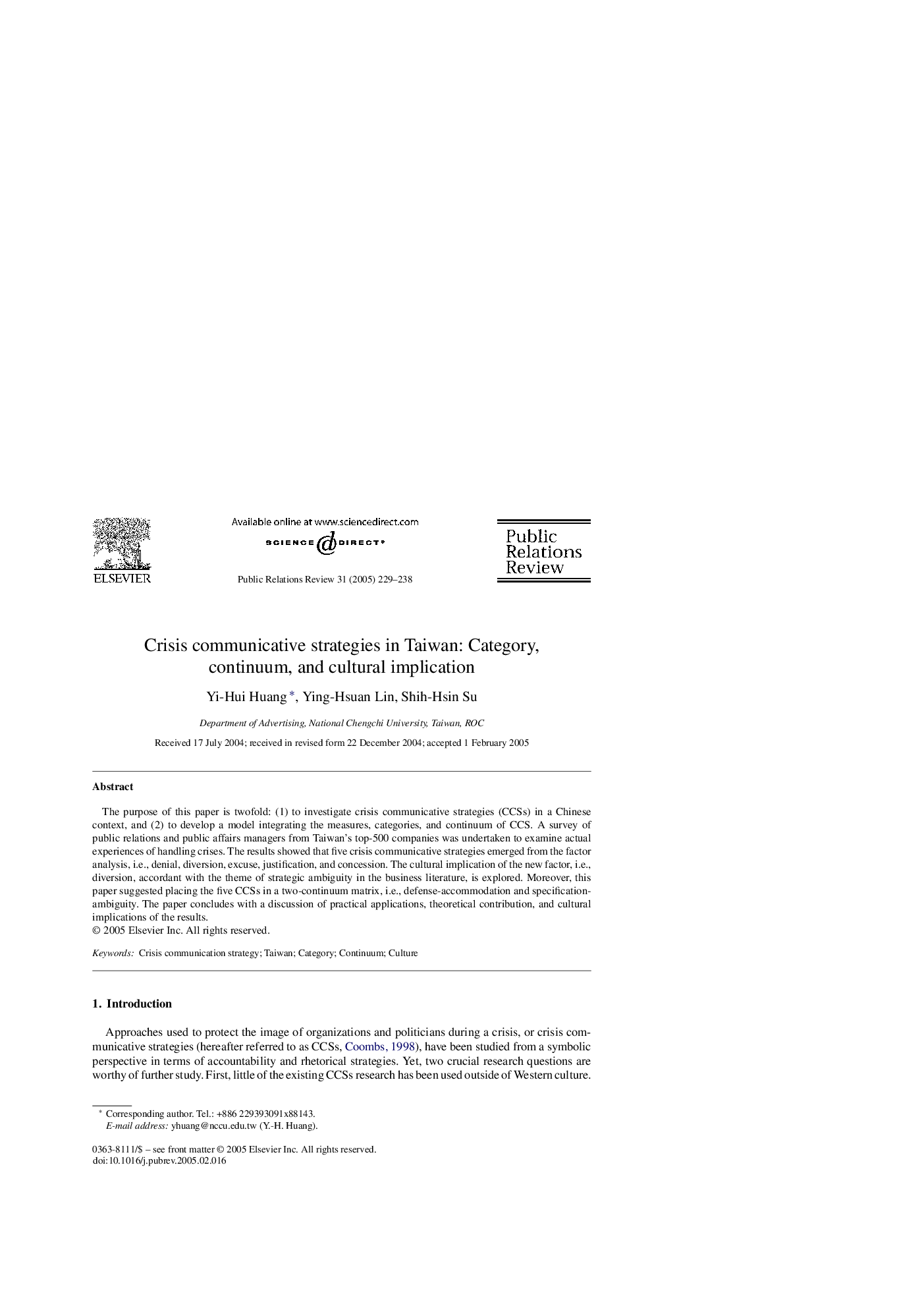| Article ID | Journal | Published Year | Pages | File Type |
|---|---|---|---|---|
| 10256140 | Public Relations Review | 2005 | 10 Pages |
Abstract
The purpose of this paper is twofold: (1) to investigate crisis communicative strategies (CCSs) in a Chinese context, and (2) to develop a model integrating the measures, categories, and continuum of CCS. A survey of public relations and public affairs managers from Taiwan's top-500 companies was undertaken to examine actual experiences of handling crises. The results showed that five crisis communicative strategies emerged from the factor analysis, i.e., denial, diversion, excuse, justification, and concession. The cultural implication of the new factor, i.e., diversion, accordant with the theme of strategic ambiguity in the business literature, is explored. Moreover, this paper suggested placing the five CCSs in a two-continuum matrix, i.e., defense-accommodation and specification-ambiguity. The paper concludes with a discussion of practical applications, theoretical contribution, and cultural implications of the results.
Related Topics
Social Sciences and Humanities
Business, Management and Accounting
Marketing
Authors
Yi-Hui Huang, Ying-Hsuan Lin, Shih-Hsin Su,
